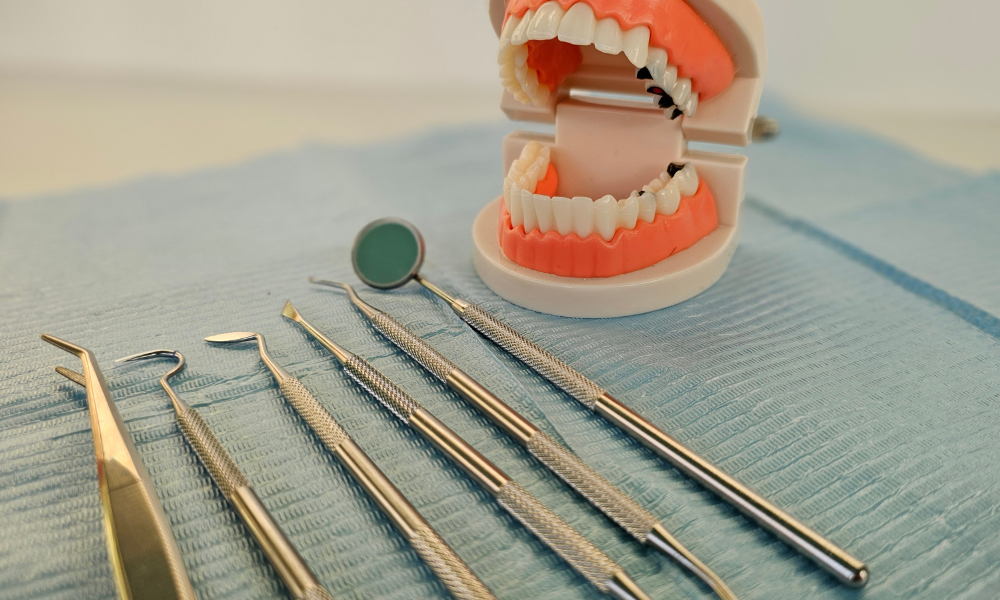Whether as a childhood or rational fear, everyone seems to be afraid of going to the dentist. But what makes it more awful is having to go back again and again because of dental malpractice or negligence. In this case, what should a patient do when their own dentist makes a mistake? Can a dentist in Canada even be sued if anything goes wrong after, say, an extraction or some other dental procedure?
What is dental malpractice?
Dental malpractice happens when your dentist makes an act or fails to do something that is expected of them professionally in the ordinary course of things. This can also refer to errors and negligence on their part as a medical practitioner. It is a sub-area of a more general field of law called medical malpractice or medical negligence. In sum, these actionable wrongs are a result of a medical practitioner’s acts or omissions.
Most common dentist mistakes
To guide you on what can constitute as malpractice or negligence of dentists, here are some of the common mistakes that your dentist can make, which you can sue for:
- complications because of anesthesia errors
- failure to diagnose or wrong diagnosis of dental conditions
- fraudulent billing
- inappropriate treatment
- incorrect tooth extractions
- infections (e.g. due to unclean equipment)
Basically, everything that may constitute professional misconduct and clinical incompetence can fall under as dental malpractice.
Here’s an actual case of malpractice by a dentist that happened in Surrey, BC:
If you need help filing a case against your dentist, reach out to the best medical negligence lawyers in Canada as ranked by Lexpert.
How can dental malpractice be proved?
Just like medical negligence in Canada, a malpractice lawsuit against a dentist will only flourish when the elements as prescribed by case law are proven. Aside from putting the effort in establishing these elements, there’s the time element of filing it as early as possible. Otherwise, a personal injury claim may be barred by your provincial statute of limitations.
Elements of dental malpractice
In suing your dentist, you’ll have the burden of proving that dental malpractice indeed happened. This is done by proving the following elements:
- existence of duty of care: that there exists a duty of care, which is your dentist’s legal obligation that they owe you as their patient; this duty is established the moment you become a patient or in any form where a dentist-patient relationship is created
- breach of duty: that your dentist breached this duty of care, by comparing how you were treated or the results of a dental procedure versus that of a standard dental procedure; it can be also established by showing the acts or omissions of your dentist, and mirroring it with a similarly trained, competent dentist
- causation: that the injuries you suffered had a reasonable connection with your dentist’s breach of duty, or that it was the direct result of this breach; the usual test would be “I would not have been injured, were it not for my dentist’s negligence or malpractice”
- damages: that you suffered some damages as a matter of fact, all because of your dentist’s breach of duty; damages can refer to compensatory damages, which can include general damages (for the non-monetary aspects of your loss, such as for pain and suffering) and/or special damages (your monetary or financial loss)
It’s important that your claim is supported by evidence that you’ll be presenting in court. To know what specific evidence you should produce, talking to a medical negligence lawyer is your best option.
Statute of limitations for dental malpractice claims
Each province and territory in Canada have enacted their own statute of limitations. These laws tell you that, as a plaintiff, you must file your claims in court within a specific time. If not, it will prescribe and cannot be filed in court anymore.
Each type of action, whether it’s a criminal or civil action, has its own limitation period. For claims against your dentist for malpractice, it falls as a civil lawsuit for damages which usually has a two-year limitation period. However, it may differ in each province or territory.
In all of these, it just means that plaintiffs, such as yourself, must immediately consult a lawyer when you think you’re a victim of malpractice or negligence.
What are the steps to sue for dental malpractice?
As a plaintiff, the first step that you should take is to consult a medical malpractice lawyer. Your lawyer would be able to:
-
tell if you do have a case to begin with, based on their personal evaluation along with the elements of medical malpractice and your evidence
- guide you on what specific pieces of evidence should be prepared, including the whole process of filing a case until a final decision is reached
- prepare your claim, and rationalize the type of damages that you’re entitled to (e.g. for lost wages, medical bills, mental anguish, etc.)
- discuss other possible options that you can resort to, aside from or before filing a case in court (e.g. mediation, negotiation)
If things are all good, then your lawyer will file your Statement of Claim before the appropriate court and a trial will ensue.
Settlement negotiations
However, before proceeding to the trial proper, or even before your Statement of Claim is filed, a settlement negotiation may happen between you and your dentist. Here, parties will try to reach a compromise or settlement; if parties cannot agree on its terms, then the trial will continue to adjudicate your claim.
Administrative actions
Along with filing a case in court, a separate administrative action may be filed before the governing regulator of dentists or medical practitioners in your province or territory. This can refer to a disciplinary action to:
- suspend or revoke your dentist’s license
- have them pay a fine or penalty
- have them undergo a professional training
Similar to the BC case above, it can also include publishing of the repeated offence that a dentist has committed to many different patients.
Looking for a law firm to help you sue for dental malpractice? Check out our directory of the best Canadian law firms for medical negligence.





